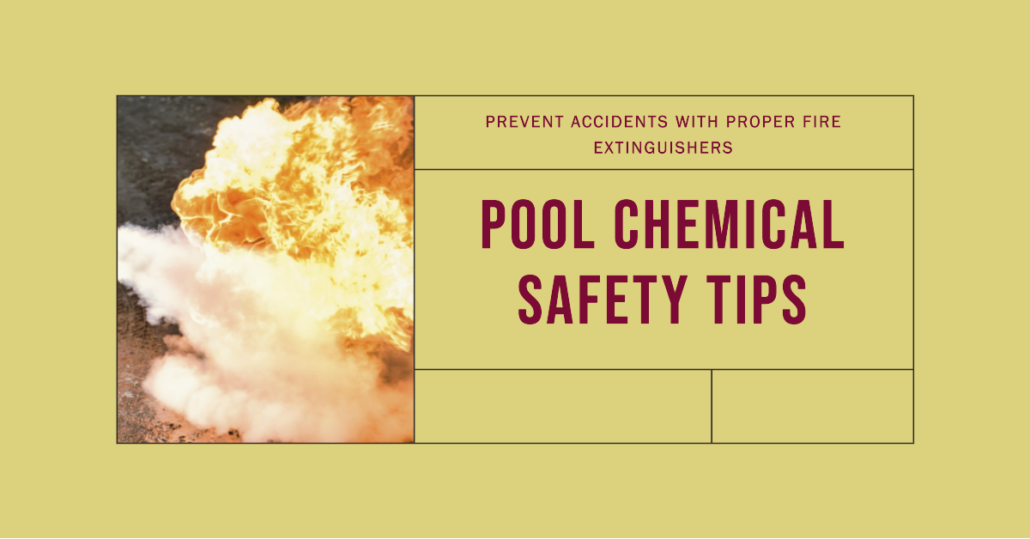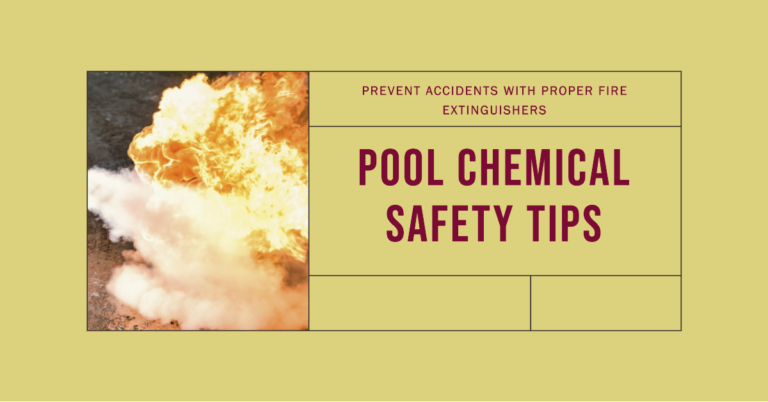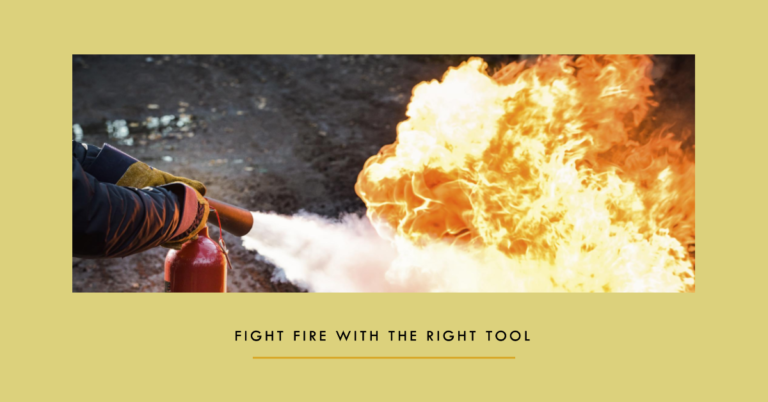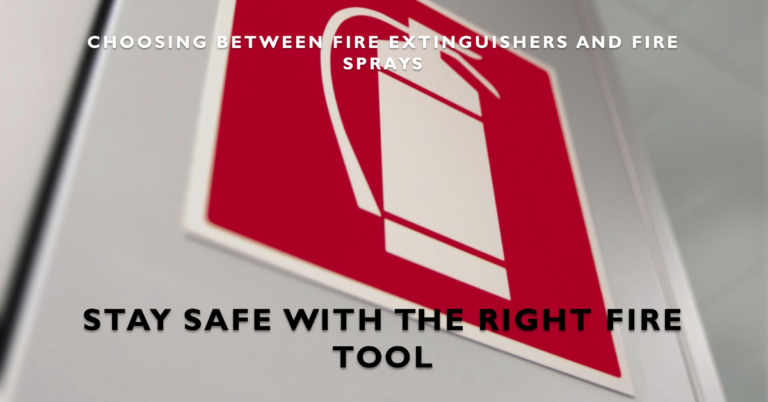Last Updated on October 9, 2023 by Allen

In the realm of pool safety, understanding which fire extinguisher for pool chemicals is paramount. Pool maintenance often involves the use of various chemicals to ensure water quality, but these substances can pose fire hazards if mishandled. In this comprehensive guide, we will explore the details of selecting the most suitable fire extinguisher for effectively combating fires related to pool chemicals.
Which Fire Extinguisher Is Suitable For Pool Chemicals
Pool maintenance is essential to keep the water clean and safe for swimming. However, the chemicals used in this process, such as chlorine, shock treatments, and pH adjusters, can become volatile if not handled properly. Knowing the right fire extinguisher for pool chemicals is crucial to ensure the safety of pool operators and patrons.
Causes of Pool Chemical Fires
Understanding the causes of fires related to pool chemicals is vital for prevention. Here are some common causes:
- Chemical Reactions: Mixing incompatible pool chemicals can lead to hazardous chemical reactions that generate heat and potentially ignite nearby materials.
- Improper Storage: Storing pool chemicals near flammable materials or in a disorganized manner can increase the risk of fires.
- Spills and Leaks: Accidental spills or leaks of pool chemicals can result in chemical reactions, releasing heat and gasses that may lead to fires.
- Incorrect Handling: Mishandling pool chemicals, such as not following safety instructions or using improper tools, can lead to accidents and fires.
- Equipment Malfunctions: Malfunctions in pool equipment like pumps or heaters can potentially ignite pool chemicals if not properly maintained.
Benefits
Preventing Escalation:
Quickly suppressing a pool chemical fire with the appropriate fire extinguisher can prevent the fire from escalating and potentially causing more significant damage to equipment and the pool area. This rapid response helps contain the incident.
Minimizing Disruption:
Promptly addressing pool chemical fires minimizes disruption to pool operations. Long periods of closure due to fire-related incidents can be costly and inconvenient for pool staff and patrons.
Preserving Water Quality:
Using the correct fire extinguisher helps prevent contamination of pool water. The wrong extinguishing agent, such as water, can introduce foreign substances into the pool, compromising water quality and safety.
Reducing Cleanup Efforts:
Fire extinguishers designed for chemical fires leave minimal residue, simplifying cleanup efforts. This not only saves time but also reduces the environmental impact and the need for extensive post-fire cleaning.
Insurance and Liability:
Compliance with fire safety regulations and the use of appropriate fire extinguishers can positively impact insurance premiums and reduce liability risks for pool facilities. Insurance companies often offer better rates to organizations that prioritize safety.
Peace of Mind:
Knowing that you have the right tools and protocols in place for pool chemical safety can provide peace of mind to pool operators, staff, and patrons. It fosters a sense of security and confidence in the facility’s commitment to safety.
Limitations
- Specific Use: Fire extinguishers are designed for specific types of fires, and using the wrong type may not be effective or can even worsen the situation.
- Training Required: Proper training is necessary to use a fire extinguisher effectively. Untrained individuals may not use it correctly.
- Maintenance: Fire extinguishers require regular maintenance and inspection to ensure they function correctly when needed.
- Limited Scope: Fire extinguishers can only suppress fires within their capacity. For larger fires, professional firefighting assistance may be required.
Safety Precautions for Handling Pool Chemicals
Best Practices for Chemical Handling
To minimize the risk of chemical fires, follow best practices. Measure and mix chemicals precisely, avoiding spills and splashes. Prevent cross-contamination by using dedicated tools for each chemical. Properly label and store chemicals to prevent accidental contact and reactions.
Ventilation and Air Quality
Maintaining adequate ventilation in areas where pool chemicals are stored or mixed is crucial. Proper airflow helps disperse fumes and reduces the risk of inhaling hazardous gasses. Monitoring air quality in these areas is essential to detect any signs of chemical release.
Frequently Asked Questions
Can I use a regular fire extinguisher for pool chemical fires?
No, it’s not recommended. Using the wrong type of extinguisher can be ineffective or hazardous. Consider a Class D extinguisher designed for chemical fires.
How should I store pool chemicals safely?
Store pool chemicals in a cool, dry place, away from flammable materials and direct sunlight. Follow manufacturer instructions for storage.
What steps should I take in case of a pool chemical fire?
Evacuate the area, call 911, and use a Class D fire extinguisher if available. Ensure everyone is at a safe distance.
Conclusion
Selecting the right fire extinguisher for pool chemicals is a crucial aspect of pool safety. Understanding the causes, benefits, and limitations of using fire extinguishers for pool chemical fires can help prevent accidents and ensure a swift response in case of emergencies. Prioritizing pool chemical safety and having the right tools on hand can make a significant difference in minimizing damage and ensuring the well-being of pool operators and patrons.






